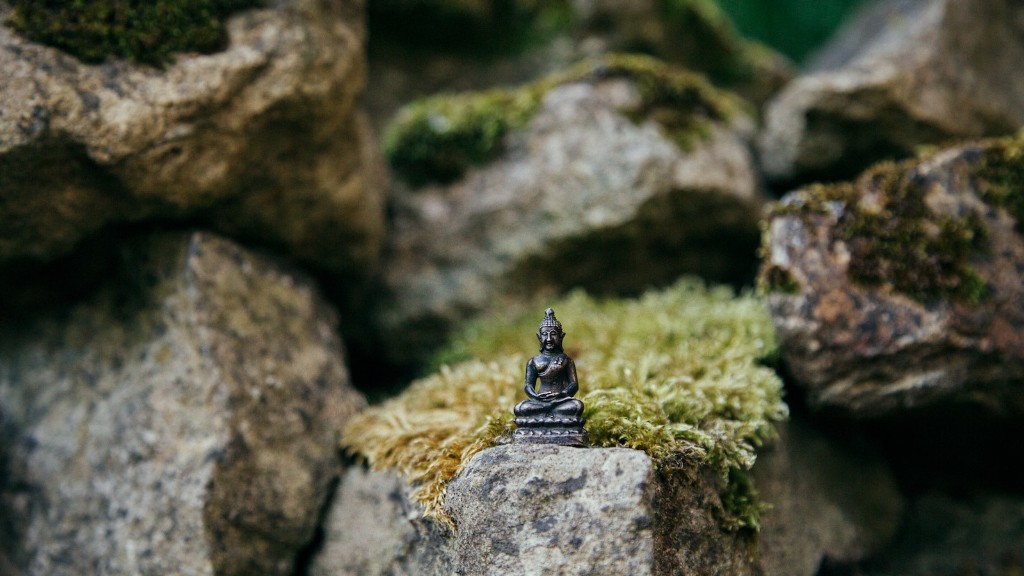Karma Is As Old As Hinduism
The concept of karma is rooted in Hinduism and has been around for millennia. It is based on the idea that all actions have consequences, and our actions in life will have an impact on our future. Hinduism teaches that karma is a spiritual law that governs the world, and it is believed that our actions have the power to shape our destiny. The concept of karma is deeply intertwined with the concepts of rebirth and reincarnation. According to Hinduism, each individual’s deeds shape the outcomes of their lives, and the cycle of karma and reincarnation will continue until they have reached enlightenment.
Karma is often referred to as a sort of cosmic justice system, with each action leading to a reward or a punishment depending on whether it was beneficial or destructive. It is believed that we reap what we sow, so our actions in this life will shape our fate for future lifetimes. Thus, karma can be seen as a way of keeping us accountable for our actions, as it is believed that our actions will be judged and weighed in the afterlife.
Karma is seen as a moral law of cause and effect. Good deeds are rewarded and bad deeds are punished, and it is believed that our actions will follow us throughout this life and beyond. Every action, whether physical or mental, has a deeper spiritual component, and even the intention behind our deeds is taken into account when evaluating karma. Therefore, it is important to act with compassionate intent to reach a positive outcome.
Karma Is Affected By Three Factors
Karma is said to be affected by three factors: mental attitude, intended outcome and effort. Mental attitude refers to the thoughts and intentions behind our actions. Intended outcome is the result that we are looking to achieve, while effort is the amount of physical action put into completing a task. When any of these three are out of balance, it can negatively affect our karma, leading to unfavorable results. It is important to ensure that our mental attitude is aligned with our intended outcome and effort, in order to bring about positive karma.
Karma can also be seen in terms of the law of cause and effect. Good actions lead to positive consequences, while bad actions lead to negative consequences. Thus, if an individual were to do something unethical or hurtful, they would experience the effects of their action in due time. On the other hand, if an individual performed a selfless or compassionate act, they could expect beneficial outcomes in the future. It is believed that our deeds will eventually ‘catch up’ with us, as karma is ultimately a force of justice and balance.
The Power Of Prayer To Balance Our Karma
In Hinduism, it is believed that prayer and spiritual practice can help to balance out our karma. Through prayer and spiritual practice, we can pay our ‘karmic debt’ and make up for past mistakes or misdeeds. Thus, it is believed that even if we have done something wrong, we can always balance out our karma and start fresh. Therefore, prayer can serve as a powerful way to undo the negative effects of our deeds and reset our karma.
Furthermore, Hinduism also teaches that we can cultivate good karma by being mindful and intentional in our actions. By living with compassion and kindness, or by performing acts of service and charity, we can work to better our karmic standing for future lifetimes. Thus, living a life of service and virtue can help us to cultivate good karma and accumulate positive energy for our spiritual journey.
Carrying Our Karma Into The Next Life
Hinduism teaches that the concept of karma follows us throughout our entire lives and into future lives. It is believed that karma can still influence us in our next life, and we may inherit both the good and bad experiences of our past lives. Therefore, it is important to be conscious of our actions in this life, as they may have consequences later on. By being mindful and responsible in our actions, we can work to cultivate good karma and set ourselves up for success in the future.
Karma is an integral part of Hinduism, and it is deeply intertwined with the concept of reincarnation. It is believed that our deeds shape our future, and each action carries a deeper spiritual significance. Therefore, it is important to be mindful and intentional in our actions, as our past deeds can have an influence on our future lives.
The Role Of Destined Karma In Hinduism
Hinduism also has a concept of ‘destined karma’, which refers to karma that is predetermined and unavoidable. It is believed that some experiences in life are predetermined by our karmic path, and these experiences can shape our lives in various ways. However, it is important to remember that these experiences are not necessarily bad, as they can also bring positive experiences and lessons. Thus, it is important to remain open to our karmic path and accept that some experiences are simply meant to be.
Karma is a powerful force in Hinduism, and it can be seen as the law of cause and effect. Every action in life carries spiritual significance, and our actions in this life will shape our destiny for future lifetimes. Thus, it is important to be mindful and intentional in our actions, and to strive for balance, compassion and virtue. Furthermore, prayer and spiritual practice can help to balance out our karma, allowing us to move forward in our spiritual journey with peace and clarity.
The Role Of Free Will In Bulding Our Future
Hinduism also believes in free will, which means that we are in control of our lives and have the power to choose our destiny. Although our karmic path may be predetermined, we still have the power to shape our own lives by making conscious and mindful decisions. Through our free will, we can work to cultivate good karma and set ourselves up for success in the future.
Furthermore, by being responsible for our actions and living with compassion and kindness, we can create a positive fate for ourselves. Through our love and compassion for others, we can make the world a better place and find greater spiritual success. Thus, free will can be seen as a way to take ownership of our lives and create a positive karmic outcome for the future.
The Role Of Hindu Practices In Balancing Our Karma
In Hinduism, certain rituals and practices are believed to help us to balance our karma and cultivate positive energy. One of the most common rituals practiced is puja, which involves offering prayers, offerings and/or donations to various gods and goddesses in Hinduism. It is believed that by offering these prayers, offerings and/or donations, we can pay off our karmic debt and reset our spiritual path.
Moreover, chanting mantras is another way to pay off karmic debt and create a positive energy around us. By chanting mantras, we can attract positive energies, open our hearts to compassion and purify our souls. Thus, chants can be seen as a powerful form of meditation and prayer, allowing us to align ourselves with the divine and create positive karma for the future.
Karma Can Be A Powerful Tool For Spiritual Success
Karma can be a powerful tool for spiritual success, as it teaches us to be mindful and responsible in our actions. Through understanding karma, we can gain insight into ourselves, set ourselves up for success in the future and cultivate positive energy for our spiritual journey. Furthermore, through prayer and spiritual practice, we can pay off our karmic debt and reset our path for greater spiritual success. Thus, karma can be a powerful tool for personal growth and spiritual enlightenment.


